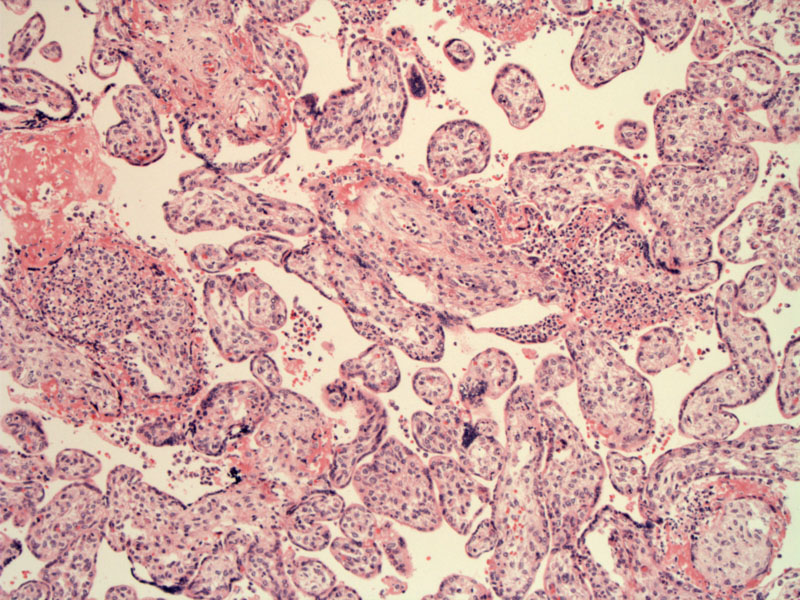

The intervillous space shows increased cellularity at this power, which is related to an influx of inflammatory cells.
The placenta shows neutrophilic collections indicative of severe acute villitis.
Listeria monocytogenes is a rare but severe infection in pregnancy. The organism is an ubiquitary, Gram positive bacillus, sensitive to most common disinfectants and pasteurization and shows an optimal growth temperature between 30.8 C and 37.8 C. Listeriosis is acquired via contaminated food ingestion such as, unpasteurized milk, uncooked meat, soft cheeses, and uncooked vegetables. The bacterium travels through the intestinal wall invading the nodes and blood to target the liver, where it grows in the hepatocytes
Maternal bacteremia very commonly leads to intrauterine infection, which may result in spontaneous abortion, preterm labor, or stillbirth. The infected neonate is often diagnosed with bacteremia/septicemia and meningitis.
Presents with maternal symptoms of a flu like syndrome. The fetus shows increased heart rate and signs of chorioamnionitis.
In one study, one-third of culture-confirmed cases of maternal-fetal infections resulted in abortion or stillbirth; however, the prognosis for live-born children is good, even in severely ill newborns (Smith)
Smith B,et al. Listeria monocytogenes: maternal-foetal infections in Denmark 1994-2005. Scand J Infect Dis. 2009;41(1):21-5.